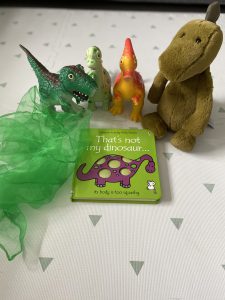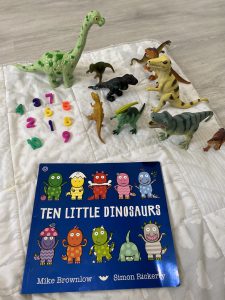As a Speech and Language Therapist, I know only too well that a child’s language development can be a huge sense of worry for parents. Am I doing enough at home? Have I waited too long to seek help? Could my child just be a late talker and if so, will the problem resolve itself? These are just some of the common concerns that I regularly hear from parents. As a mum to two young boys, one of whom was born 9 weeks prematurely and faces his own challenges with developmental delays, I understand and empathise with anyone struggling with language delays. The good news is that there are many ways in which you can help your child develop and best of all, you can start right now.
My approach is play-based and therefore easier to implement into your daily routine. The first thing to remember is that learning language is all about having fun rather than a teacher / student scenario. If you get down to your child’s level and follow their lead, this is when the language modelling becomes more meaningful as they are focused on the topic and generally want to learn. If they have an interest in a particular topic or toy (cars, dinosaurs, trains, dolls – the possibilities are endless!), you can use this opportunity to build on what they already know and model appropriate language.
For example, my son loves dinosaurs, so we play different games and I’ve managed to sneak in lots of important language targets. Verbs – making the dinosaurs eat, drink, sleep and jump. Sometimes they are in a box, or on the table, or under a chair to teach prepositions. We bring them to the garden for various different adventures and to enjoy the grass or swim in some water. You can describe the toys size, shape, feel and colour or look at books on the topic, make up silly songs or read some relevant books using the toys as props. All of these activities and any other games you choose to play target different areas of language and expose your child to new vocabulary in a setting that they’re relaxed and comfortable in, making it much more likely that they will engage in the whole process.
We also try to use lots of books and songs to really underpin existing language, as well as introducing new sounds, words and gestures. Never underestimate the power of singing a song with your child! Nursery rhymes especially are really useful for their simple, repetitive nature – if you have any objects around the house that you can use to demonstrate parts of the song, do! It really helps to make the language modelling more meaningful and gives your child the opportunity to explore and experience the objects. The same goes for books and any props that you could use in conjunction with them. In keeping with our current love for dinosaurs, we are big fans of the 10 Little Dinosaurs and That’s not My Dinosaur books and regularly use our own toys to make reading it together a much more interactive experience. For younger children, nursery rhyme books are the perfect way to get them involved and expose them to new language as well as reinforcing vocabulary.


If a child is delayed in their speech, a great idea is to simplify your own language during play. Again, get down to the child’s level and rather than asking them multiple questions about their game or toy (‘What’s that’ or ‘Where is the bus going’) simply model the word of what they are playing with (for example: Bus) over and over until they learn the word. You can then advance this to include more words (Green Bus / Beep Beep / Fast Bus / Big Bus) or you could sing a song like Wheels on the Bus to back up what they have already been learning. This is yet another instance that demonstrates the importance of songs for developing language skills. Not only does singing capture and hold a child’s attention much more effectively than if you were to just speak, the simplicity and repetition is a fantastic way to encourage and reinforce first words.
Over the years, working with a huge range of children with varying needs, one thing has stood out to me across the board. When a child feels that they are under pressure to perform (known as Communicative Pressure), they are more likely to opt out and communicate less rather than more. Similarly, in the home environment, asking too many questions can produce the same pressure and result in the same reluctance to communicate. A great way to get around this is to reduce questions and instead comment to model the language and give your child the chance to copy. Children learn much better when the pressure is off so by making small changes to how we interact, we as parents can really help with their language development.
Another very common question I get is how to know when professional help is needed. My advice here is that YOU know your own child best and to trust your instincts as a parent. If you think there is an issue, it’s usually with very good reason so it’s absolutely no harm to have your child assessed by a qualified therapist. The sooner you get in touch and get started with therapy, the sooner you will see results. Speech and Language Therapy is a non-invasive, play-based therapy that children tend to enjoy and so a great way to start your child on their communication journey or simply give them a helping hand if they’re having some difficulty.
Children all develop at different rates but when it comes to language abilities, in general they will all reach communication milestones at a similar age range. If you feel your child is delayed, now is the time to contact us and arrange to have them assessed for your own peace of mind and to commence working on the delay as soon as possible. There’s no pressure or obligation to book a block of sessions following an assessment so absolutely no reason not to give us a call and see if we can help.
Contacting a professional may feel like a huge and daunting step but one thing I am a huge advocate of is Early Intervention for language delays. Extensive evidence has repeatedly shown us what a difference this can make in a child’s development. The ‘wait and see’ approach is outdated, taking action early on is truly the best course of action. Children with language delays can really struggle as they enter a school-based setting and often have issues with social interaction and accessing the curriculum so it can make a huge difference if tackled early.
For more information on all of our services and how we can help you and your family, please get in touch and for lots more fun and practical ideas on how you can build early language development into your daily life, find us on Instagram and Facebook.
